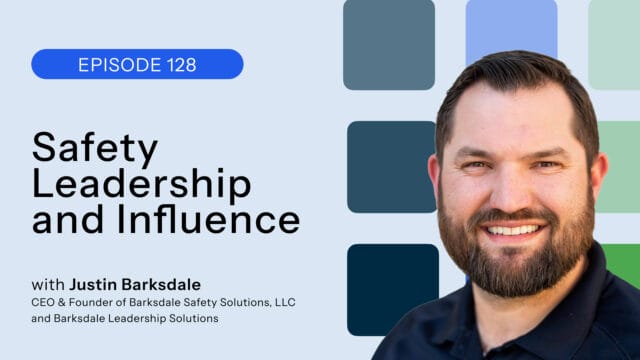
ESG Trends: 7 Developments to Watch in 2023
Companies must adapt to changing ESG trends to remain competitive and sustainable in today’s rapidly evolving business landscape.

In recent years, the Environmental, Social, and Governance (ESG) concept has gained significant traction among businesses, investors, and stakeholders, who increasingly demand companies prioritize ESG considerations in their decision-making processes. However, doing so means keeping up with the latest ESG trends critical for companies looking to remain competitive and sustainable in today’s rapidly changing business landscape.
This article explores seven ESG trends that are gaining momentum and how they can help companies devise strategies for building a more sustainable future.
7 ESG Trends You Should Know
ESG trends that all companies should be aware of include the following seven:
1. ESG Analytics
ESG analytics refers to evaluating a company’s performance and risk exposure related to ESG factors. It can help investors, analysts, and other stakeholders to make informed decisions about a company’s ESG risks and opportunities.
ESG analytics typically involves the analysis of data and information related to a company’s operations, policies, and disclosures, as well as its impact on the environment and society. These factors can include the following:
- Waste management
- Greenhouse gas emissions
- Labor practices
- Diversity and inclusion
- Executive compensation
- Board composition
The results of ESG analytics can help generate ESG ratings or scores, which provide a relative assessment of a company’s ESG performance compared to its peers. These analytics can also identify ESG-related risks and opportunities and inform investment decisions, engagement strategies, and other actions.
2. Sustainability Impact Measurement
Sustainability impact measurement quantifies and evaluates the positive and negative effects of a company’s operations, products, or services on environmental, social, and economic sustainability.
It aims to provide a comprehensive and systematic assessment of a company’s sustainability performance, identify areas for improvement, and support decision-making processes.
Sustainability impact measurement involves collecting data and analyzing the impact of a company’s activities on a range of sustainability indicators, such as the following:
- Water consumption
- Waste generation
- Labor practices
- Community engagement
The results of sustainability impact measurement can be used to develop new strategies, set goals and targets, and monitor and report on sustainability performance.
3. Natural Capital
Natural capital refers to the stock of natural resources and ecosystems that benefit society. Common such resources include the following:
- Water
- Air
- Soils
- Minerals
Companies are recognizing the value of natural capital and taking steps to protect and restore it, such as investing in reforestation or reducing water consumption. These actions, known as ecosystem services, are crucial to the sustainability of global economies and, ultimately, societies.
Examples of ecosystem services include the following initiatives:
- Adequate food and clean water
- Regulatory services such as disease control
- Pollination
- Flood management
- Provisioning services such as materials and food
- Cultural services such as recreation and well-being
4. Circular Economy
Many stakeholders, from customers to software providers, want to extend the product life cycle through the circular economy concept.
The circular economy is an economic model aimed at minimizing waste and maximizing the use of resources. The traditional linear economy model follows a “take-make-dispose” approach, which involves extracting resources for product development and later disposing of them as waste.
In contrast, the circular economy aims to keep resources in use for as long as possible by reusing, repairing, and recycling materials and products.
The circular economy model involves the following three fundamental principles:
- Designing out waste and pollution using renewable materials, minimizing waste generation, and reducing energy consumption.
- Keeping products and materials in use for as long as possible by promoting reuse, repair, and recycling.
- Regenerating natural systems by promoting the restoration of ecosystems, biodiversity, and soil health.
By implementing circular economy practices, companies can reduce their reliance on finite resources, minimize waste and pollution, and promote sustainable production and consumption.
5. Greenhouse Gas Protocol Frameworks
Global scientists concur that the world is experiencing a climate emergency requiring rapid intervention. Businesses must first study common standards and frameworks To support green computing programs and other sustainability activities.
Companies must prioritize upping their understanding of the Greenhouse Gas Protocol frameworks, which standardize how businesses report and manage greenhouse gas emissions. A good starting point is studying the fundamentals of scope 1, 2, and 3 emissions, which are as follows:
- Scope 1 emissions are emissions from assets a corporation owns or controls, such as heating systems and factories.
- Scope 2 emissions are the atmospheric emissions of greenhouse gases caused by businesses purchasing heat, cooling, steam, etc.
- Scope 3 emissions are indirect emissions not covered by Scope 2 and include most emissions a reporting company produces. They come from upstream sources like mining and refining raw materials and downstream sources like distribution and product power efficiency.
To identify and focus on critical emission-related issues, a company must understand its goals and targets across all three scopes.
6. Supply Chain Sustainability
Supply chain sustainability refers to managing and integrating environmental, social, and economic factors into all aspects of a supply chain, from sourcing raw materials to delivering products or services to the end customer.
The goal of supply chain sustainability is to ensure that the supply chain operates in a way that minimizes negative impacts on the environment, promotes social responsibility, and supports long-term economic growth.
Some of the key strategies for achieving supply chain sustainability include the following:
- Traceability. Tracking the origin and movement of products and materials throughout the supply chain to ensure compliance with ethical and sustainable standards.
- Collaboration. Building partnerships with suppliers, customers, and other stakeholders to establish shared goals and standards for sustainability.
- Innovation. Investing in new technologies and processes that reduce waste, conserve resources, and minimize environmental impact.
- Transparency. Sharing information about supply chain practices and performance with stakeholders, including customers, investors, and regulators.
- Risk management. Identifying and addressing potential risks and disruptions to the supply chain, such as climate change, natural disasters, or social unrest.
7. Impact Sourcing
Impact sourcing is a business process outsourcing model that aims to provide employment opportunities and economic empowerment to individuals from disadvantaged backgrounds, such as the following:
- Low-income communities
- Refugees
- People with disabilities
In impact sourcing, companies intentionally hire and train individuals from these communities to perform outsourcing tasks such as the following:
- Data entry
- Customer service
- Technical support
By supplying employment and training opportunities, impact sourcing helps to create pathways out of poverty and promote economic development in disadvantaged communities.
Impact sourcing also offers benefits to companies beyond social impact. Those that engage in impact sourcing can benefit from cost savings, increased productivity, and improved talent retention.
Adapting to ESG Trends Successfully Requires the Best Solutions
The ESG landscape is rapidly evolving, and businesses prioritizing sustainability and ESG integration are more likely to thrive in the long term. As the world faces pressing sustainability challenges, identifying and adapting to ESG trends will only become more critical in shaping a more sustainable and equitable future.
However, correctly identifying these trends and adapting your sustainability approach requires the industry’s premier risk management technology.




